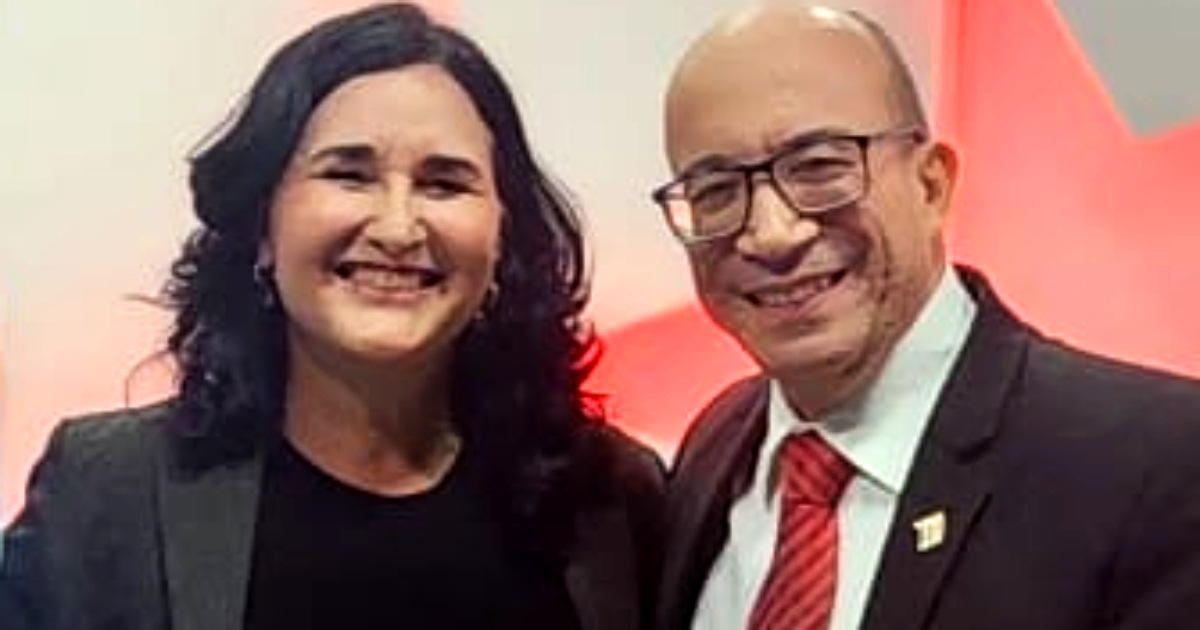
Related videos:
Johana Tablada de la Torre, Deputy Director General for North America at the Cuban Ministry of Foreign Affairs (MINREX), categorically rejected U.S. accusations that there are Chinese-operated espionage bases on Cuban territory.
“There are no Chinese spy bases in Cuba, and the U.S. government knows it very well. Find another lie!” Tablada de la Torre wrote in a recent post on Facebook, adding the typical defiant and categorical tone that characterizes her public statements.
Her statements emerge in a context of renewed diplomatic tension between Cuba and the United States, following the release of a report by U.S. intelligence agencies that claims the presence of Chinese infrastructure on the island, used for gathering sensitive data about the United States.
Reports have intensified in recent months, highlighting a growing influence of Beijing in the Caribbean, which is raising concerns in Washington.
The response from Havana, through the regime's high-ranking official and its foreign minister, seeks to discredit U.S. intelligence reports, accusing them of being a strategy of “politicking” to justify economic and diplomatic sanctions against Cuba.
Chinese spying accusations: the background of the allegations
The issue of Chinese espionage bases in Cuba is not new, but it has gained particular relevance following recent revelations.
In June 2023, the Biden administration confirmed the existence of a Chinese facility on the island, allegedly used to gather intelligence information about the United States.
This facility would have been part of a strategic agreement between Havana and Beijing, which includes financial support for the crisis-hit Cuban economy in exchange for its collaboration in espionage activities.
A report released in December 2024 by U.S. intelligence sources expanded on these revelations, detailing that these bases operate with advanced technology and specialized personnel, and are designed to intercept sensitive communications coming from U.S. territory.
Washington expressed concern that these activities are part of a larger effort by China to consolidate its influence in Latin America, using Cuba as a strategic point due to its proximity to Florida and other key U.S. security facilities.
Among the activities attributed to these alleged bases are the interception of satellite signals, military communication networks, and data from U.S. government agencies.
According to the report, the Cuban regime allegedly allowed these operations as part of its political and economic alliance with China, at a time when U.S. sanctions continue to stifle the Cuban economy.
The denials of the Cuban regime
The Cuban regime has consistently dismissed these allegations, labeling them as fabrications by the United States.
In several public statements, Foreign Minister Bruno Rodríguez and other figures of the regime, including Tablada de la Torre herself, have insisted that there are no foreign espionage bases in the country.
In June 2023, Rodríguez stated that these accusations were part of a “disinformation campaign” to justify the policy of “blockade” against Cuba.
The regime has also stated that Cuba does not permit activities that compromise its sovereignty. However, these statements clash with the increasing number of reports regarding the Chinese presence on the island and the close economic ties between the two countries.
In July 2024, Havana once again denied the accusations following the release of another report in the United States, insisting that such allegations were unfounded.
Johana Tablada de la Torre: An unwavering defender of the regime in a key position
Johana Tablada de la Torre has established herself as one of the main voices of the Cuban regime in its defense against accusations from the United States.
As the Deputy Director of MINREX for North America, her work focuses on responding to criticisms from the United States against the regime and strengthening the official narrative in international forums.
Tablada has been at the center of numerous controversies. In April 2023, he dismissed the allegations related to the "Havana Syndrome," claiming they were a "fabricated tale" to justify aggressive policies against the island, and referred to the "paranoia" of the United States as the "Washington Syndrome".
In the same year, she accused the United States of wanting to "destroy the Cuban Revolution against the will of the people", a recurring argument in her speech. Her rhetoric is characterized by a combination of direct confrontation and a strong attachment to the regime's narrative, which always presents itself as a victim of U.S. policies.
On the international stage, Tablada de la Torre has been identified as one of the key figures in justifying the regime's repressive actions.
In 2019, she defended the actions of the Cuban police against independent journalists, arguing that these were necessary measures to protect "public order." In 2023, she was included in a list of "repressors" compiled by Cuban activists in exile, who accuse her of covering up human rights violations.
Additionally, the official has justified the constitutional prohibition of ideological plurality on the island by asserting that Cuba's stability depends on socialism and that any attempt to modify the political system is a direct attack on national sovereignty.
Once again, Johana Tablada's statements regarding the Chinese espionage bases in Cuba illustrate the Cuban regime's effort to discredit any accusations that might challenge its particular narrative.
However, revelations from U.S. reports about the presence of Chinese intelligence infrastructure on the island are fueling tensions between the two countries and highlighting Cuba's strategic role in the geopolitical conflict between Washington and Beijing.
While the regime insists on denying these accusations, Tablada's statements reflect the official line of a totalitarian regime that is becoming increasingly vulnerable on the international stage.
Her figure, as an unwavering defender of the system, is representative of the regime's strategy to maintain its hold on power, justifying questionable alliances and rejecting any critical observations from the outside.
Filed under: